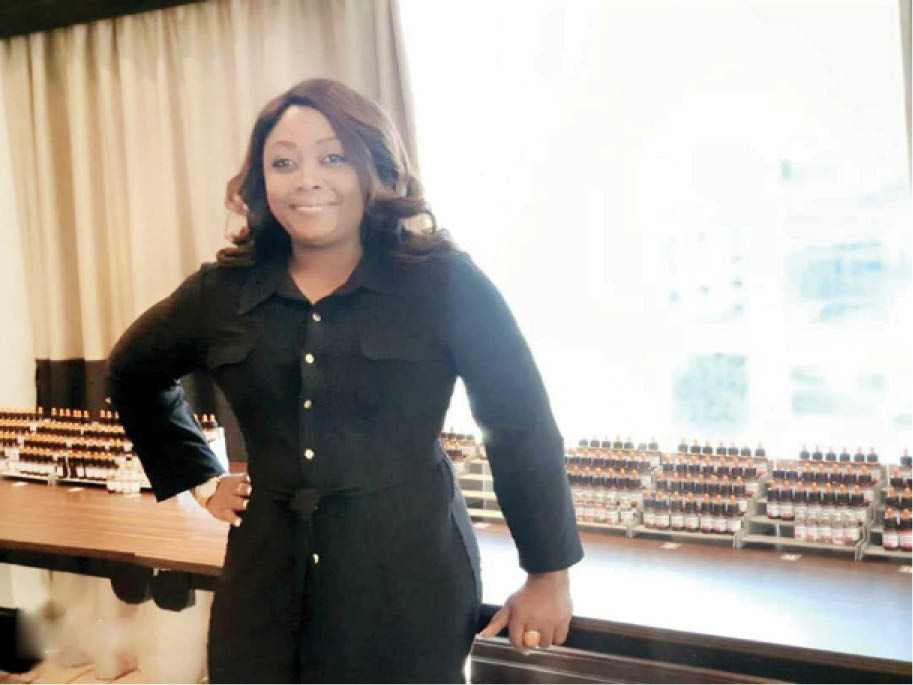How I became a perfume composer – Deola
Deola Paul-Inyang is a Nigerian perfume composer and scent architect. She is the Chief Executive Officer (CEO) of Scents of Africa and the Director of Àbélà Fragrance Academy pioneering the conscious and systemic skill creation of artisan perfumers in the country. You are a perfume composer and scent architect, how did you come about […]

Deola Paul-Inyang
Deola Paul-Inyang is a Nigerian perfume composer and scent architect. She is the Chief Executive Officer (CEO) of Scents of Africa and the Director of Àbélà Fragrance Academy pioneering the conscious and systemic skill creation of artisan perfumers in the country.
You are a perfume composer and scent architect, how did you come about composing perfume?
I have always been intrigued by scents through early exposure to my mother’s designer perfume collections. My intrigue to the construct of perfumes on the other hand stems from my curious mind, an innate sense of creativity to deconstruct and reconstruct. The love for the art steered the need to communicate elements and emotions that I otherwise would have no verbal reference for. Perfume composing became my form of expression where words failed me.
As an architect of scent, how do you design scent?
For me, scent architecture bears semblance to building the structure of a musical piece, both sharing the need to communicate in non-verbal terms. The designing process starts with intent to communicate a unique story inspired by the life around me.
How did you come about the brand ‘Àbélà’ and what does it mean?
The idea of Àbélà was created from my creative passion and nose for scents as well as a throw-back memory of happy moments in my childhood where my grandmother would light up taper candles on the eve of New Year; indicative of ushering in a glorious new year. My grandmother would say, ‘E lo tan Àbélà’, which is interpreted from the Yoruba language as ‘Go, light up the candles’.
Kindly explain the technicalities of scent creation?
In realism, scent creation is 1 percent inspiration and 99 percent perspiration. It’s painstaking; requiring extreme patience, a lot of hard work on the nose and the mind to create that masterpiece we’d be blessed to have many possibly love.
What kind of perfume do you create and where do you source your materials from?
My creative style tilts more to the delicate impact of aromatics to the mind and emotions. I create scents that ease the mind into a harmonious state of balance. I create perfumes for use in the home, bath and body scent application as well as commercial scent applications. I am strict about the source and quality of materials. I source materials across the globe. Each continent has unique aromatic essences that are synonymous to them. For instance, Africa has a huge supply of the Rose essence, vanilla, myrrh, frankincense amongst many others. The choice of materials used in my composition is dependent on the inspiration for the perfume creation.
What is the importance of perfumes, do they have any health benefit?
Scents in general have a psychological impact on our mind, mood and emotions. They can positively alter our state of mental well-being. Natural aromatics have a therapeutic benefit to them as observed in Aromatherapy. Many natural aromatics have properties from which are the derivatives of most early medicines.
What do you do at Àbélà Fragrance Academy?
Àbélà Fragrance Academy is the in-house training academy of Scents of Africa also known as Àbélà World. Upon inception, we set in motion a learning academy to teach the art of perfumery, aromatherapy and candle making. Àbélà Fragrance Academy was inspired by my start-up struggles. It was imperative to create a platform that offered credible tutoring for would-be artisans. I also saw the need to groom a relatively untapped creative asset in Nigerian youth.
How do you admit students, what courses do you offer and what is the duration of the training?
Àbélà Fragrance Academy currently offers short courses on the technology and art of perfumery and candle making. Our courses are designed to help participants understand not just ‘the how’ but also ‘the why’ of the art of scents. They are designed to help participants understand the nuances and psychology of scents. We use a ‘learn by having fun’ approach to teach our courses such that complete beginners with little or no knowledge background can learn with ease.
What is your assessment of the perfume/scent market in Nigeria?
The trade aspect to the perfume market has experienced astronomical growth in recent years. We do believe that this growth would transcend into creating stronger impact for growth in scent architecture, design and manufacturing. It’s been a daunting yet exhilarating experience pioneering the growth for niche fragrance creation in Nigeria.
How about the cost of production and price of selling thereafter?
It is imperative to note that niche perfumery could be a relatively pricey venture. This is more so relative to the cost of aromatic raw materials used in the composition of perfumes rather than its relative cost of operations.
